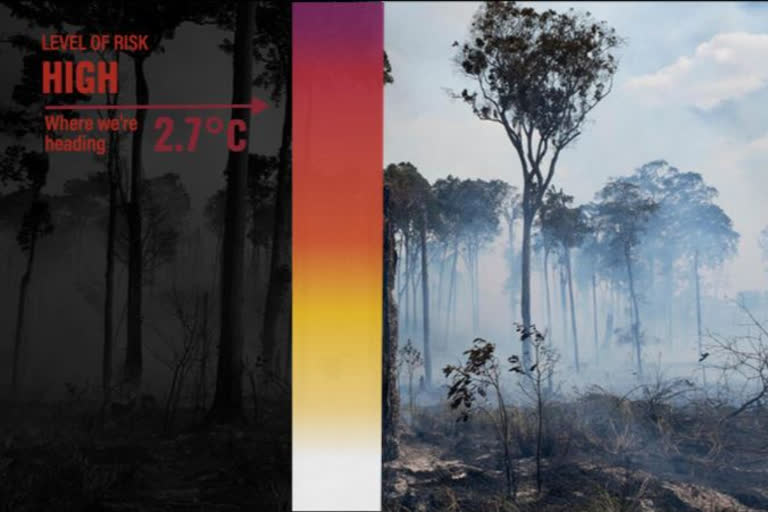New Delhi: IPCC's latest report warning of unavoidable multiple climate hazards in next two decades make it clear that climate change is a human rights issue, Greenpeace India said on Monday and called for collective efforts to deter greater risks. The Intergovernmental Panel on Climate Change (IPCC) Working Group II's report 'Climate Change 2022: Impacts, Adaptation and Vulnerability, said the world faces unavoidable multiple climate hazards over the next two decades with global warming of 1.5 degrees Celsius. Even temporarily exceeding this warming level will result in additional severe impacts, some of which will be irreversible, it said.
Avinash Chanchal, Campaign Manager at Greenpeace India said world leaders are required to face the facts emerging from the report with brutal honesty and responsibility so that solutions match the scale of the interconnected challenges. "Today's updated IPCC findings make it clear that climate change is a human rights issue. We now have enough facts to say the most vulnerable and poor communities in the global south are already facing a greater risk from the climate crisis and collective efforts are needed to deter that. Mortality from extreme weather events is staggering and higher than ever in climate-vulnerable countries like India. Government and corporations must ensure that any climate action has to address the growing gap on adaptation, losses, damage and deep injustices," he said.
Also Read: UN climate report: 'Atlas of human suffering' worse, bigger
"World leaders are required to face the facts emerging from the report with brutal honesty and responsibility so that we can find solutions that match the scale of the interconnected challenges," Chanchal said. He said the IPCC report has presented the most elaborate scientific assessment of climate impacts until now. "While the report focuses on impacts, adaptation and vulnerability, it also provides detail on how severe the impacts of climate change already are and how it's causing widespread losses and damages to people and ecosystems across the globe. "Only by protecting and restoring ecosystems can we build their resilience towards warming and protect all their services that human wellbeing depends on," Chanchal said.
The report also highlights how extreme events are impacting cities, settlements and related infrastructure. It points out the need for an adequate system that can support climate resilience, mitigation and enable climate adaptation in cities, Greenpeace India said. "The report is certainly going to define climate politics. No more announcements without action are going to work.
"Last year in Glasgow at the UN climate summit, governments admitted they're not doing nearly enough to meet the Paris Climate Agreement 1.5 degrees Celsius warming limit, promising to revise their national targets by the end of 2022. The time is now to act," Chanchal added. The Working Group II contribution to the IPCC Sixth Assessment will be followed by the contribution of the Working Group III in April, which will assess ways to mitigate climate change.
PTI



